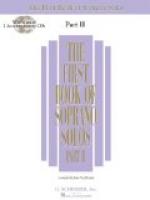Mrs. Gray was a comfortable lady, absorbed in the quiet machinery of a conventionally proper life. She loved her family, her church, and a moderate amount of society. She loved things. Quiet satisfaction beamed from the gentle eyes on the choice silver of the dining-room, on her blue antique china, on the costly, tasteful accessories of the drawing-room, and, indeed, on all the well chosen appointments of the quietly elegant home. Interest in her own person and its adornment had been gradually diverted toward Winifred, whose beauty, grace of manner, and accomplishments, were an unfailing joy. Now she sighed in quiet gratitude to the vague deity known as Providence for Winifred’s peculiarly sweet gift. As to the sermon of the morning, she was one of those hearers in whose mind a sermon and its application do not necessarily go together.
Winifred felt two pairs of eyes upon her from across the table as her mother talked to her in a voice not intended to interrupt the gentlemen in their conversation. There were Hubert’s eyes of darker brown than her own and very searching, and the preacher’s blue eyes that looked inquiringly through rimless eye-glasses. She could think of no answer to her mother, and so bent her eyes silently upon her plate, while a flush rose to her temples. Mrs. Butterworth’s rapturous “heavenly” was in strong contrast to the conviction of godless insincerity which filled her own heart.
Mercifully to her embarrassment her father began again:
“But do you not think, Mr. Bond, that we must take things as they are? Granted that there is a great deal of unreality in the church, what are we going to do about it? Can one man who sees the point work a revolution in the whole church? Must we not just take conditions as they are and make the best of them?”
“Perhaps we may not hope to revolutionize a whole church,” replied Mr. Bond, “but,” and his face grew stern with an expression that told of a battlefield already fought for and won, “he may refuse to add one unit to the aggregation of untrue worshipers, or to uphold an organized system of unreality. I sometimes fear, Mr. Gray,” and there was a ring of sadness in his voice, “that we too readily take conditions as they are, and make the worst of them!”
“Yes, I am afraid you are right—you are right,” said the merchant slowly. Then he added, “but so far you have given us only a negative remedy. My son here could go so far with you. He washes his hands of the whole matter.”
Mr. Bond turned to Hubert inquiringly.
“Really?” he questioned.
“Yes,” said Hubert, thus thrust unwillingly into the discussion, “I am no worshiper at all.”
“And may I ask why?” queried Mr. Bond.
“Your book says that whoever comes to God must believe that He is, and that He rewards those who seek Him. I am not sure of either proposition, and so I do not pretend to come to Him.”




